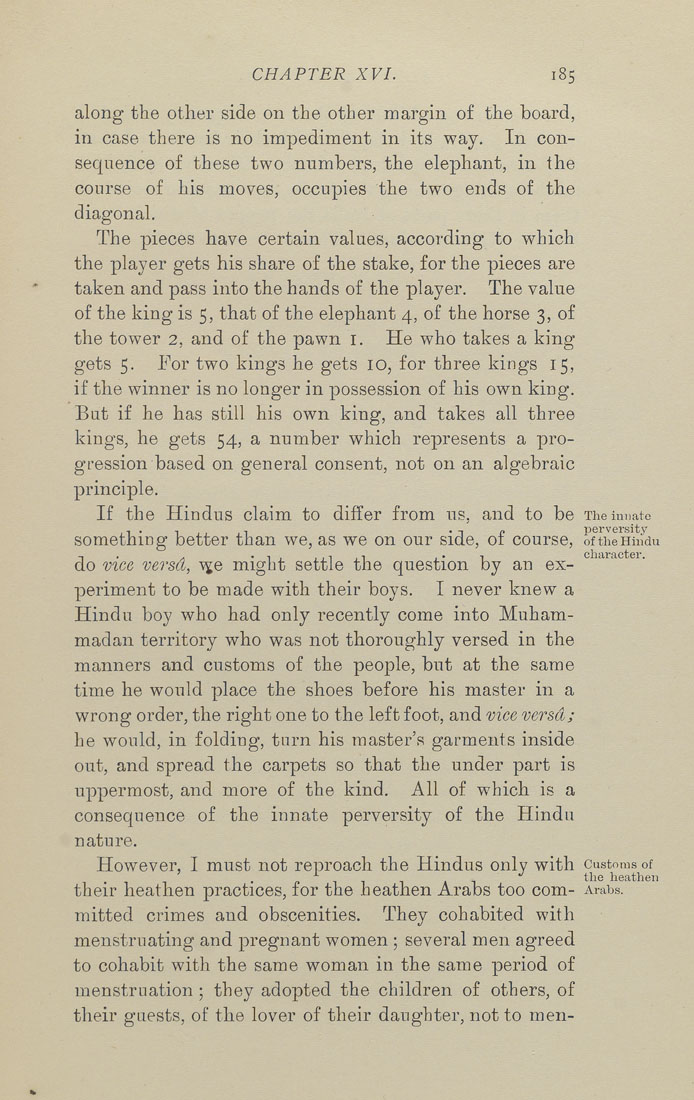Bīrūnī, Muḥammad ibn Aḥmad, Alberuni's India (v. 1)
(London : Kegan Paul, Trench, Trübner & Co., 1910.)
|
||
|
|
|
|
| Page 185 |

CHAPTER XVI. 185 along the other side on the other margin of the board, in case there is no impediment in its way. In con¬ sequence of these two numbers, the elephant, in the course of his moves, occupies the two ends of the diagonal. The pieces have certain values, according to which the player gets his share of the stake, for the pieces are taken and pass into the hands of the player. The value of the king is 5, that of the elephant 4, of the horse 3, of the tower 2, and of the pawn i. He who takes a king gets 5. For two kings he gets 10, for three kings 15, if the winner is no longer in possession of his own king. But if he has still his own king, and takes all three kings, he gets 54, a number which represents a pro¬ gression based on general consent, not on an algebraic principle. If the Hindus claim to differ from us, and to be TheinDate something better than we, as we on our side, of course, of the Hindu do vice versd, yge might settle the question by an ex¬ periment to be made with their boys. I never knew a Hindu boy who had only recently come into Muham¬ madan territory who was not thoroughly versed in the manners and customs of the people, but at the same time he would place the shoes before his master in a wrong order, the right one to the left foot, and vice versd; he would, in folding, turn his master's garments inside out, and spread the carpets so that the under part is uppermost, and more of the kind. All of which is a consequence of the innate perversity of the Hindu nature. However, I must not reproach the Hindus only with customs of Pill *^''° heathen their heathen practices, for the heathen Arabs too com- Arabs, mitted crimes and obscenities. They cohabited with menstruating and pregnant women ; several men agreed to cohabit with the same woman in the same period of menstruation ; they adopted the children of others, of their guests, of the lover of their daughter, not to men- |
| Page 185 |







